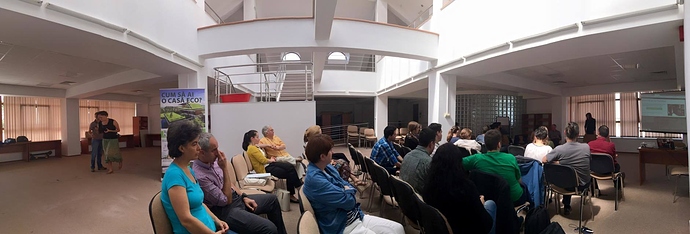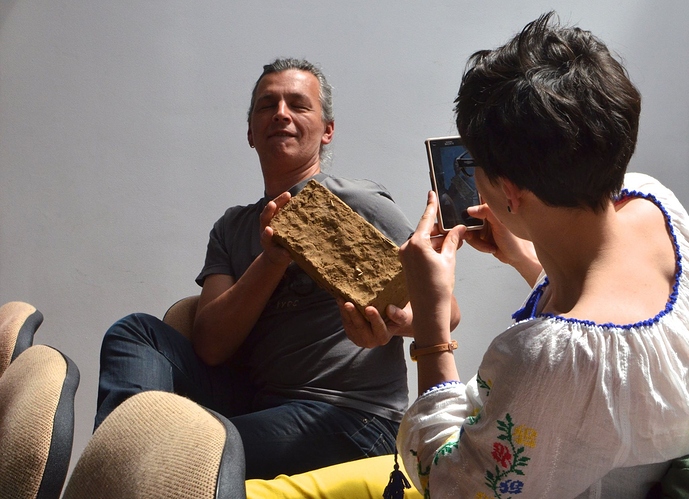“Circular economy is about circularity of relationships”
As far as I’m concerned, our goal was met: we had insightful, honest conversations around bringing circularity in our everyday realities.
We had 4 major sessions - panels and open discussions. Here are a few things we learned, with thanks to everyone who sent their notes! The rest, feel free to send your own conclusions):
Circular cities:
In Romania landfilling should be more expensive so people are encouraged to organise and recycle waste.
How to think long term when planning for sustainability? People never say “build me a recyclable house”. Should we even keep constructing in cities versus …renovating old buildings? Costs are higher to redo than build from scratch, but these costs are only calculated on the short term. Policy makers, politicians, planners never think of the next 50 years, but they should.
What if sustainable architecture is also about options for those traditional excluded? (the poor, the Roma, or in any segregated communities) This is where low cost constructions can make a difference (along the insulation - earthship range of building types).
Everyone seemed to agree that supporting grassroots movements is going in the right direction; next step is to partner with people in administrations that are not politicians; next step is to train all administrators in sustainability!
Closing the loop:
The key question here was: how to build a market for products involving some circularity? “sustainability does not sell yet. Your price can’t compete with mass products… people won’t pay 2 extra lei for your upcycled product. Nobody has enough profit yet in order to scale up their business. They’re almost break it even.”
There needs to be more awareness of the entrepreneurs, and becoming more skilled at marketing sustainability. We also need to we need to pressure authorities to put the right embodied tag costs on products - there is a lot of distorsion and consumers lack information.
Experienced social businesses, or makerspaces and projects incubating creativity and experimentation can offer new ways - they do need to keep up the work and lead by example.
Hacking our lifestyle habits for less waste: Dan shared a lot of things that one can do - build rocket stoves for reduced energy consumption, make our own cleaning products from vinegar, use models such as the Repair Cafe to fix things, source food locally (even do foraging in the city!), consume less packaged products (from organising the food for OSCEDays, Iulian and I learned to never again let the olive lady sack us with plastics!)
Thank you for the memorable line: “happier people consume less” <3
#opensource #everything: Just a thought to sleep on as we get back to our daily business: Remember the idea behind OSCEDays is to share and make open the work, the solutions we come across, to be generous with documentation, to reach out when we need help. Maybe this seems too unknown or scary for you, so just think about it as you go on.
Finally, our colleagues who organized OSCEDays in Bucharest are asking if a facebook group should be formed to continue the conversation and make it a resource space where we are all in touch and can organise new circular economy events in the future. Would you like to join?
Flavia from A.CASA - an earth house in Rosia brought a mudbrick to show how to build low cost houses in poor, socially segregated areas.
Pictures from Jonathan
Other pics available on our facebook event.
Writeups about OSCEDays Sibiu (before and after):
-
The long paths of bringing global networks to good uses in local communities, By Noemi Salantiu
-
Noi modele pentru o economie mai sanatoasa, By Iulian Ifrim
-
OSCE Days - invitatie la un alt model de economie, Capital Cultural Sibiu

